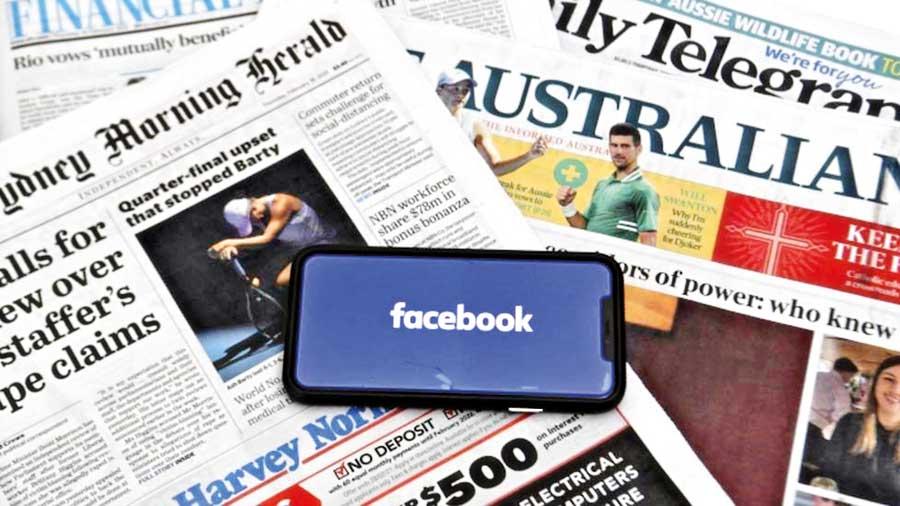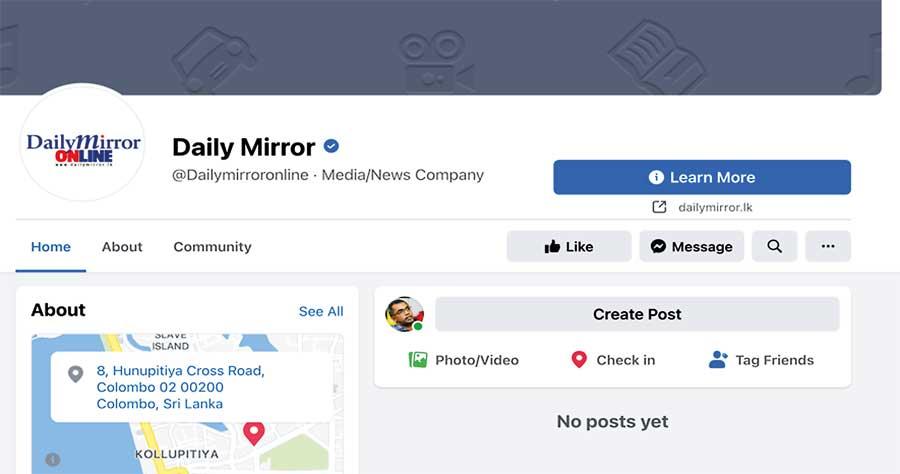Reply To:
Name - Reply Comment
 Facebook, the tech giant has blocked news to Australians on its platform since last Thursday amid a dispute over a proposed law which would force it and Google to pay news publishe
Facebook, the tech giant has blocked news to Australians on its platform since last Thursday amid a dispute over a proposed law which would force it and Google to pay news publishe
The Facebook ban on news in Australia on its platform was not totally unexpected. The social media giant has been threatening to do just that for some time. But when it really did happen, when the news related pages on my feed suddenly went blank, it did feel surreal.
has been threatening to do just that for some time. But when it really did happen, when the news related pages on my feed suddenly went blank, it did feel surreal.
How it works is that if you are accessing Facebook from Australia, you will not see any Australian or international news content neither can I share them. This is how this newspaper’s Facebook page looks on my screen right now.
It’s Facebook’s way of indicating that it does not want to play ball with Canberra’s moves to get social media platforms – Facebook and Google – to pay for the news content that is shared on the platforms. The Australian government wants the content providers and the social media companies which account for more than 80% of global digital advertising to reach a deal. If not, they would have to abide by a Code -- News Media and Digital Platforms Mandatory Bargaining Code.
"The outcome of this is likely to be felt across the world. In countries like Sri Lanka, a block on news sites is unlikely to alter the national news ecology. This is simply because the online news is dominated by gossip sites and those playing catch-up to them"
The Code is a first across geographical boundaries. Google has entered into several payment agreements with news organisations when Facebook pulled the plug on news content in Australia with one newspaper calling it an act of war while others said that Facebook had shot itself in the foot. Some tech writers however felt that Facebook was right in its action whereas Google was the first to blinked.
Facebook did stuff up a bit. Along with the news pages out went a host of public information pages and those of public services organisations, including for some time the page of the Australian Bureau of Meteorology and MSF Australia. Most of the information pages were later restored but not before a public outcry.
The two sides continue to talk on the impasse. The Australians have also been talking to other international heavy weights including India and Canada on this matter. Whether the long distance diplomacy would have any impact is still unclear.
"Most of the big media groups like the public service network ABC have turned to their Apps and websites as a means of working round the ban. In fact, the ABC news App was the highset downloaded App soon after the news ban came into effect. But Facebook is still a factor, a big factor"
Most of the big media groups like the public service network ABC have turned to their Apps and websites as a means of working round the ban. In fact, the ABC news App was the highset downloaded App soon after the news ban came into effect. But Facebook is still a factor, a big factor. As journalists Uma Patel said in a Tweet, “ABC has used Facebook’s ban to prompt visitors to download its App. It became the most downloaded App in Australia, although the next four are all owned by Facebook and the 6th is a company FB tried to buy”.
Facebook still does have a huge influence on online news consumption. While those like ABC can look at alternate means to gain in the situation, small time players, especially regional news outlets will find it hard to sustain traffic without Facebook. The news block also showed how quickly Facebook can act when it wants to and the impact.
The outcome of this is likely to be felt across the world. In countries like Sri Lanka, a block on news sites is unlikely to alter the national news ecology. This is simply because the online news is dominated by gossip sites and those playing catch-up to them. The final result of this will show whether Facebook is willing to be much more conciliatory when dealing with national jurisdictions as well as challenges to its main economic model – that it is just a platform for sharing and not a content producer.
It will also show whether news content producers, especially the smaller ones, can survive without Facebook. The news ecology is changing, but is it changing fast enough that Facebook has lost its hold.
The writer is a journalism researcher and a journalist. He can be contacted on
[email protected]
